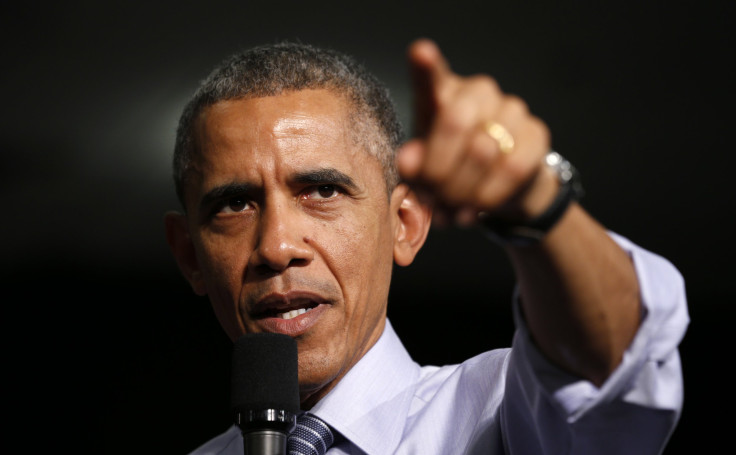What The New US Authorization To Use Force Against ISIS, Other Terror Groups May Say

President Barack Obama is poised to ask Congress for formal authorization to fight terrorist groups, the first such request in more than 13 years in the “War on Terror.” The request, known as Authorization for Use of Military Force (AUMF), may be sent by the White House to Congress as early as Wednesday and will ask for updated powers on military action including in Syria and Iraq. The current authorization was approved in 2001, in a vastly different landscape, when the Islamic State group had yet to emerge as a threat and Congress was not controlled by Republican majorities.
According to an unnamed congressional official cited in the Military Times, Obama may ask for a three-year authorization, which will leave the door open to sending ground troops if needed, but not for a prolonged time. The White House will also not restrict the authorization to fight to specific geographic locations, allowing the U.S. to respond militarily to any future terror groups emerging worldwide.
The political issue for the White House is finding a balance not just between Democrats and conservative lawmakers in the Republican-majority Congress, but also between those in both parties who want a broad authority to fight the Islamic State group and those who fear another protracted war in the Middle East. The administration is talking to lawmakers about precisely those issues.
"The final text of the AUMF and timing for delivery will not be locked until we are able to complete these robust consultations and consider all of the feedback we have received," a source familiar with the White House’s outreach told Reuters Tuesday.
Military Times, citing a senior congressional official, reported the White House has not set out formal language on the new authorization, although a draft has been completed.
The fight against ISIS has so far been on the legal authority of the AUMF that Congress passed in 2001, authorizing the administration to use force to persecute the perpetrators of the 9/11 attacks, but also contained language that gave the president power to “prevent any future acts of international terrorism against the United States by such nations, organizations or persons.” That authorization was followed in 2002 by another one giving the president the power to use force against Iraq.
Critics have claimed using those twin authorizations as the legal basis to fight ISIS is a legal stretch. But Obama says he has the legal authority to continue conducting airstrikes and also send as many as 2,700 U.S. troops to train and assist Iraqi security forces.
Obama can count on support for a new, broad resolution from Republican heavyweights such as John McCain, the chairman of the Senate Armed Services Committee. “I’ve heard a lot of rumors,” McCain said. “In my view [the AUMF] cannot constrain the president of the United States, and it should not be specific to ISIS, including [Syrian President Bashar Assad]. If we don’t like what the president does, we have the power of the purse. The president is the commander in chief and I believe we should not constrain his military actions.”
Other lawmakers have been less than happy with rumors the AUMF might authorize ground troops. "I've been clear in opposition to boots on the ground, but I'd like to see what they propose and hear them out," Sen. Brian Schatz, D-Hawaii, said. "It's traditional and expected for an administration to articulate their strategy to the Congress, so we want to give them a chance to do so."
© Copyright IBTimes 2024. All rights reserved.






















